So, you’re curious about the cost of roofing, huh? Well, you’ve come to the right place. Whether you’re in need of a roof repair or contemplating a full roof replacement, it’s always a good idea to have a ballpark figure in mind. We’ll cover all the bases for you, from the average roof replacement cost to estimating the cost of roof repair leaks and everything in between.
Let’s start with the roof replacement cost average. Now, keep in mind that this can vary depending on several factors such as the size of your roof, the materials used, and your location. On average, though, you can expect to spend a certain amount per square foot for a roof replacement. This figure includes both labor and materials, so it gives you a good idea of what to budget for.
Now, if you’re dealing with a pesky roof leak and wondering about the cost of repair, fear not! We’ll dive into that as well. The cost of fixing a roof leak can vary depending on the severity of the issue and the extent of the damage. But, on average, you can expect to pay a certain amount for the necessary repairs. This typically includes both the materials needed to fix the leak and the labor involved.
For those considering a rubber roof replacement, you might be interested in the specific cost associated with that. Rubber roofs are known for their durability and longevity, but they do come with a price tag. Again, the cost can vary depending on factors like size and location, but we’ll provide you with a general idea of what to expect.
Now, you might be wondering how to get a roof replacement cost estimate that’s tailored to your specific needs. Well, fear not! We can help you with that too. By taking into account the unique aspects of your roof and your requirements, we can provide you with a personalized estimate that gives you a clearer picture of what you’ll be spending.
Just sit back, relax, and let us do the number crunching for you. Our goal is to provide you with a conversational and human-like experience, ensuring that you have all the information you need to make an informed decision about your roofing services project.
Remember, we’re here to help, so if you have any questions along the way, don’t hesitate to ask. Let’s get started and find out how much your roofing adventure is going to cost you!
Factors Affecting Roof Replacement Cost
Size of the Roof
The size of your roof is a fundamental factor in determining the overall cost of replacement. Roof size is typically measured in terms of squares, where one square equals 100 square feet. The larger the roof, the more materials and labor will be required, which can drive up the cost. A larger roof also means more time and effort for the roofing crew to complete the job, contributing to increased labor costs.
Roofing Materials Used
The choice of roofing materials has a significant impact on the cost of roof replacement. Different materials come with varying price points, durability, and aesthetic appeal. Asphalt shingles, for example, are a popular and cost-effective option, while premium materials like metal, tile, or slate can be more expensive. Additionally, specialty materials or custom designs may further increase the cost of materials.
Roofing Contractor’s Labor Costs
The labor costs charged by roofing contractors can vary based on factors such as their expertise, reputation, and geographic location. Experienced and highly skilled contractors often charge higher rates, reflecting their expertise and the quality of work they provide. Labor costs also encompass factors like the complexity of the installation, the time required for completing the job, and the size of the crew involved.
Geographic Location and Local Market Prices
The cost of roof replacement can vary depending on your geographic location and the prevailing market prices in your area. Different regions have different costs of living, labor rates, and material availability, which can all impact the overall cost. Areas with higher living expenses or where roofing materials need to be transported from afar may experience higher prices. Additionally, local market competition among roofing contractors can influence pricing.
Additional Considerations
In addition to the factors discussed earlier, there are several additional considerations that can impact the cost of roof replacement. These factors should be taken into account when estimating the overall expenses of the project:
Roof Complexity:
The complexity of a roof can significantly affect the cost of replacement. Roofs with multiple slopes, intricate architectural features, or unique designs require more labor and time to install or replace. Contractors may need to spend extra time and effort to ensure proper fitting and installation of materials, which can increase the overall cost.
Permits:
Depending on your location, obtaining permits for roof replacement projects may be required by local building codes and regulations. Permit costs vary by region and may need to be factored into the overall budget. It is important to check with your local authorities to determine if permits are necessary and to include any associated fees in your cost estimation.
Disposal Fees:
When replacing a roof, the old roofing materials, such as shingles or tiles, need to be removed and properly disposed of. Some contractors include the cost of disposal in their overall quote, while others may charge a separate fee for this service. It is essential to clarify with your contractor whether disposal fees are included in the estimate or if they will be an additional cost.
Underlying Damage:
During the inspection or removal of the old roof, it is possible to discover underlying damage to the roof deck or structural components. This could include rotting wood, water damage, or weakened supports. If such damage is identified, repairs or replacements may be necessary, which can add to the overall cost of the roof replacement project. It is crucial to address underlying damage to ensure the structural integrity of the new roof and prevent future issues.
National Average Cost per Square Foot
The national average cost per square foot for roof replacement can serve as a helpful starting point for estimating your project expenses. As of the latest data available, the average cost ranges from $5 to $12 per square foot. However, it’s essential to note that this is just an average, and the actual cost can vary based on several factors.
Regional Variations
Regional variations can significantly impact the cost of roof replacement. Factors such as local labor rates, material availability, and market competition can cause prices to differ from one area to another. For instance, densely populated urban areas or regions with higher costs of living tend to have higher overall project costs compared to rural areas. Therefore, it’s crucial to consider your specific location when estimating the cost.
Choice of Roofing Materials
The choice of roofing materials is a significant factor that influences the cost of roof replacement. Different materials come with varying price points, and the cost range can be substantial. Here, we will provide a general breakdown of the cost range based on popular roofing materials:
Asphalt Shingles:
Asphalt shingles are one of the most commonly used roofing materials due to their affordability and versatility. They are available in various styles and colors, making them a popular choice for homeowners. On average, asphalt shingles tend to be the most affordable option, with costs ranging from $3 to $7 per square foot. Keep in mind that the specific cost within this range will depend on factors such as the quality of shingles, the complexity of the installation, and the region you are located in.
Metal Roofing:
Metal roofs have gained popularity in recent years due to their durability, energy efficiency, and low maintenance requirements. They are known for their ability to withstand harsh weather conditions and can last for several decades. The cost range for metal roof replacement typically falls between $7 and $15 per square foot. The exact cost will depend on the type of metal used (e.g., steel, aluminum, copper), the style of the panels, and any additional features or coatings.
Tile or Slate:
Tile or slate roofs are renowned for their timeless beauty, exceptional durability, and longevity. They can add a touch of elegance to any home and are often associated with high-end architectural styles. However, they come with a higher price tag compared to other roofing materials. The cost range for tile or slate roofs can vary widely, starting from $10 per square foot and going up to $30 or more. The specific cost within this range depends on factors such as the type of tile or slate chosen, the complexity of the installation, and any additional customization.
It’s important to note that these cost ranges are approximate and can be influenced by factors such as the quality of materials, roof complexity, and additional features like insulation or ventilation.
Breakdown of Cost Components
When estimating the cost of roof replacement, it’s important to understand the breakdown of cost components. The overall cost typically consists of three main factors: materials, labor, and permits/fees.
Materials:
This includes the cost of the roofing materials themselves, such as shingles, metal panels, tiles, underlayment, and any additional supplies required for installation. The type and quality of materials chosen can significantly impact the overall cost.
Labor:
The labor cost involves the fees charged by the roofing contractor for the installation or replacement work. This includes the time and effort spent by the crew on the project. Labor costs can vary depending on factors such as the complexity of the project and the expertise of the contractor.
Permits and Fees:
Some areas require permits for roof replacement projects, which may involve additional costs. These permits ensure that the work is done in compliance with local building codes and regulations. Additionally, disposal fees for old roofing materials may be included in the overall cost.
Factors Influencing Roof Repair Costs
There are several key factors that influence the cost of roof repairs. Understanding these factors can help homeowners anticipate and plan for the potential expenses involved. Here are some factors that roofing contractors consider when determining the cost of roof repairs:
Severity of the damage:
The extent of the damage plays a significant role in determining the cost of repairs. Minor issues such as a small leak or a few damaged shingles may be relatively inexpensive to fix. However, if the damage is extensive, such as a large leak or significant structural damage, the repair costs can be significantly higher.
Type of repair needed:
The specific type of repair required will also affect the cost. Different repairs involve varying levels of complexity, time, and materials. Common types of roof repairs include fixing leaks, replacing damaged shingles, repairing flashing issues, addressing sagging or rotted roof decks, and gutter repair. The complexity and materials involved in each type of repair will contribute to the overall cost.
Accessibility:
The accessibility of the damaged area can impact the cost of repairs. If the damaged portion of the roof is easily accessible, it may be simpler and quicker to complete the repairs, resulting in lower labor costs. However, if the damaged area is difficult to reach, such as in a steep or high roof, additional safety measures and equipment may be required, increasing the overall cost.
Materials:
The type of roofing materials used in the repair will also affect the cost. Different materials have varying price points, and some may require specialized installation techniques or additional supplies. The cost of materials will depend on factors such as the type of shingles, the quality of the flashing materials, and any other components needed for the repair.
Additional considerations:
There are other factors that can influence the cost of roof repairs. For example, if a repair requires a permit from the local authorities, there may be associated fees. Additionally, if the damaged area has underlying issues that need to be addressed, such as rot or structural damage, the cost of repairs will be higher. Disposal fees for removing old roofing materials may also be included in the overall cost.
Common Types of Roof Repairs
Roofs can experience a range of issues over time, and it’s important to address them promptly to prevent further damage and maintain the integrity of your roof. Here, we will discuss some of the most common types of roof repairs:
Leaks:
Roof leaks are a common problem that can lead to water damage, mold growth, and structural issues. Repairing leaks typically involves identifying the source of the leak and patching the affected areas. This may include replacing damaged or missing shingles, repairing flashing around roof penetrations, or sealing gaps and cracks in the roof.
Damaged Shingles:
Shingles can become damaged due to weathering, impact from debris, or improper installation. Damaged shingles can compromise the roof’s ability to shed water and protect the underlying structure. Repairing or replacing damaged shingles is necessary to maintain the integrity and appearance of the roof. This may involve removing the damaged shingles and installing new ones, ensuring a proper seal and alignment.
Flashing Issues:
Flashing is the material used to create a waterproof barrier around roof penetrations such as chimneys, vents, and skylights. Over time, flashing can become damaged, corroded, or improperly installed, leading to water infiltration. Repairing or replacing damaged or deteriorated flashing is crucial to prevent water penetration and protect the vulnerable areas of the roof.
Sagging or Rotting Roof Deck:
The roof deck is the structural foundation of the roof, and any sagging or rotting can compromise its stability. This issue can be caused by water damage, age, or inadequate support. Repairing or reinforcing a sagging or rotted roof deck may involve removing the damaged sections and installing new plywood or reinforcing with additional supports. This repair ensures the structural integrity of the roof and prevents further damage.
Gutter Repair:
Gutters and downspouts play a crucial role in directing water away from the roof and foundation of a home. Clogged or damaged gutters can lead to water overflow, causing water to seep into the roof and potentially damage the fascia, soffit, or siding. Repairing gutters involves removing debris, repairing leaks or loose connections, and ensuring proper water drainage.
Average Cost Estimates for Roof Repairs
When it comes to roof repairs, the costs can vary depending on the type and extent of the damage, as well as the materials and labor required. While it’s essential to obtain specific estimates from roofing contractors, having a general idea of average cost estimates can be helpful. Here are some ballpark figures for common roof repairs:
Repairing a small roof leak:
The cost of repairing a small roof leak can range from $200 to $500. Keep in mind that the actual cost will depend on factors such as the location and severity of the leak, the accessibility of the affected area, and the extent of any necessary repairs.
Replacing a few damaged shingles:
If you have a few damaged shingles that need to be replaced, you can expect to pay an average of $150 to $400. The cost will depend on the number of shingles that need replacement, the type of shingles used, and any additional work required to ensure a proper installation.
Repairing flashing issues:
Repairing or replacing damaged flashing around chimneys, vents, or skylights typically costs between $200 and $500. The exact price will depend on the extent of the flashing damage and the complexity of the repair work.
Fixing a sagging or rotted roof deck:
Repairing or reinforcing a sagging or rotted roof deck is a more extensive repair that may require additional labor and materials. The cost can range from $500 to $1,500, depending on the size and severity of the issue.
Gutter repair:
If your gutters are clogged, damaged, or in need of repair, you can expect to pay an average of $150 to $500. The cost will depend on the length of the gutters, the extent of the damage, and whether any additional services such as gutter cleaning or realignment are required.
It’s important to note that these figures are average cost estimates and may vary based on several factors. The regional cost of living, local market prices, and specific contractor rates can all influence the final cost of roof repairs in your area. Additionally, the complexity of the repair, the type of roofing materials used, and any additional considerations unique to your situation can impact the overall cost
Importance of Addressing Repairs Promptly
Addressing roof repairs promptly is crucial to prevent further damage and higher costs in the long run. Delaying repairs can lead to more extensive damage, potentially affecting the structural integrity of the roof and the interior of your home. Water intrusion can cause mold growth, damage insulation, and compromise the overall comfort and safety of your living space. By promptly addressing repairs, you can minimize the extent of damage, protect your property, and avoid costly repairs down the line.
Remember to consult with professional roofing contractors to get accurate cost estimates for your specific repair needs. They will assess the damage, provide detailed estimates, and recommend the necessary repairs to ensure the longevity and performance of your roof.
Benefits of Rubber Roofing Materials
Rubber roofing materials have gained popularity in recent years due to their numerous benefits. Here are some key advantages of using rubber roofing materials for your roof replacement:
Durability:
Rubber roofs are known for their exceptional durability. They can withstand harsh weather conditions, including extreme temperatures, UV radiation, and heavy rain or snow. Rubber roofing materials are designed to be long-lasting and can provide reliable protection for many years.
Flexibility:
Rubber roofing materials are highly flexible, allowing them to adapt to various roof shapes and designs. This flexibility makes them suitable for both flat and sloped roofs, providing versatility in their application. The ability to conform to the roof’s contours helps ensure a watertight seal and prevents water penetration.
Leak Resistance:
Rubber roofs have excellent resistance to leaks. The seamless installation and watertight nature of rubber materials make them highly effective in preventing water infiltration. This quality is particularly beneficial for flat or low-slope roofs that are prone to water pooling and leakage.
Energy Efficiency:
Rubber roofing materials often have reflective properties that help reduce heat absorption. This can contribute to energy efficiency by keeping the building cooler during hot summer months, reducing the strain on cooling systems, and lowering energy costs. Additionally, some rubber roofs can be installed with insulation layers, further enhancing their energy-saving capabilities.
Low Maintenance:
Rubber roofs are relatively low maintenance compared to other roofing materials. They are resistant to common issues such as rot, decay, and insect damage. Rubber roofs do not require frequent repairs or extensive maintenance, making them a cost-effective option in the long run.
Eco-Friendly:
Rubber roofing materials are considered environmentally friendly. Many rubber roofs are made from recycled materials, such as old tires, reducing waste and promoting sustainability. Additionally, their energy-saving properties contribute to a greener footprint by reducing energy consumption and carbon emissions.
Noise Reduction:
Rubber roofs provide excellent noise reduction qualities. They absorb sound vibrations, reducing noise from rain, hail, or other external sources. This can create a quieter and more comfortable indoor environment.
Lightweight:
Rubber roofing materials are lightweight compared to some other roofing options. This lightweight nature makes them easier to install and puts less stress on the roof structure. It can also help reduce the overall construction costs.
General Cost Range for Rubber Roof Replacement
The cost of rubber roof replacement can vary depending on factors such as the size of your roof, the complexity of the project, and your location. On average, the cost of rubber roof replacement falls within the range of $8 to $12 per square foot. However, it’s important to note that this is a general estimate, and the final cost may be influenced by factors specific to your project.
Additional Considerations for Rubber Roofs
When estimating the cost of rubber roof replacement, there are a few considerations that may impact the overall expense. These include:
Existing Roof Removal:
If you have an old roof in place, its removal may add to the overall cost of the replacement project. The labor and disposal fees associated with removing the existing roof should be taken into account.
Installation Complexity:
The complexity of your roof’s design and features, such as vents, skylights, or chimneys, can affect the overall cost. More intricate roof structures may require additional labor and materials, which can increase the final price.
Insulation and Underlayment:
Insulation and underlayment play crucial roles in the performance and energy efficiency of your roof. Consideration should be given to the cost of these additional components, as they may impact the overall expense of the rubber roof replacement.
To obtain an accurate cost estimate for your rubber roof replacement project, it’s recommended to consult with reputable roofing contractors. They will assess your specific requirements, provide a detailed breakdown of costs, and guide you through the process of selecting the right rubber roofing materials for your needs.
Tips for Finding Reliable Roofing Contractors and Requesting Quotes
To find reliable roofing contractors, consider the following tips:
When it comes to finding reliable roofing contractors and requesting quotes, taking the following tips into consideration can help ensure a smooth and successful roof replacement project:
Seek recommendations:
Start by asking friends, family, or neighbors who have recently had their roofs replaced for recommendations. Their firsthand experiences can provide valuable insights into the quality of workmanship, professionalism, and reliability of the contractors they hired.
Research online:
Use online resources to your advantage. Look for roofing contractors in your area who have positive reviews and high ratings on trusted websites. Read customer feedback and testimonials to get a sense of their reputation and the level of satisfaction among their past clients. Websites like Angie’s List, Better Business Bureau (BBB), and HomeAdvisor can be valuable resources for finding reputable contractors.
Check credentials:
Verify that the roofing contractors you are considering are licensed, insured, and certified to perform roof replacements in your area. A valid license ensures that they have met the necessary requirements and regulations set by local authorities. Insurance coverage protects you from liability in case of any accidents or property damage during the project. Certification from manufacturers indicates that the contractors have undergone training and are approved to install specific roofing materials, ensuring quality workmanship.
Schedule consultations:
Once you have a shortlist of potential contractors, schedule consultations with them. This allows you to discuss your project in detail, ask questions, and gauge their professionalism and expertise. During the consultation, pay attention to their communication style, responsiveness, and willingness to address your concerns.
Request detailed quotes:
Provide each contractor with accurate information about your roof, including its size, current condition, and any specific requirements you may have. Ask them to provide you with detailed written quotes that include a breakdown of costs. The quote should clearly outline the materials to be used, labor costs, any additional services or features, and the timeline for completion. Having detailed quotes from multiple contractors allows you to compare their offerings and make an informed decision.
Evaluate the cost and value:
While cost is an important factor, it should not be the sole determinant in choosing a contractor. Consider the overall value they provide, including their reputation, experience, expertise, and the quality of materials they use. A contractor offering significantly lower prices may cut corners or compromise on quality, which can lead to future problems and additional expenses down the line. Choose a contractor who provides a fair and transparent quote while offering quality workmanship and reliable service.
Ask for references and portfolios:
Request references from the contractors and take the time to contact their past clients. Talking to homeowners who have worked with the contractor can provide insights into their experience, the quality of work, and their overall satisfaction. Additionally, ask the contractors to provide portfolios or examples of their previous roofing projects. This allows you to see the quality of their work firsthand and assess their expertise in handling projects similar to yours.
Read and understand the contract:
Before signing any agreements, carefully review the contract provided by the chosen contractor. Ensure that it includes all the agreed-upon details, such as the scope of work, materials to be used, payment terms, and project timeline. If anything is unclear or if you have any concerns, seek clarification from the contractor before proceeding.
Factors Considered in Cost Assessment
When it comes to assessing the cost of roof replacement, roofing contractors take several factors into consideration. These factors help them determine an accurate estimate for the project. Here are some key factors that contractors consider:
Roof Measurements:
Contractors start by measuring the size of your roof. This includes calculating the square footage and considering the pitch or slope of the roof. The measurements help determine the amount of materials needed, the extent of labor required, and the overall complexity of the project.
Materials:
The type and quality of roofing materials you choose will impact the overall cost. Different materials have different price points, and some materials require additional features or accessories. Contractors will consider the cost of the materials and any specialized installation requirements for the chosen roofing material.
Labor:
The labor cost is an important component of the overall estimate. The complexity of the project, including factors such as roof design, slope, and accessibility, will influence the labor cost. Additionally, the number of workers needed and the time required to complete the project will also be taken into account.
Additional Factors:
Contractors may also consider other factors that can affect the cost of roof replacement. These can include the need for permits and associated fees, disposal fees for removing the old roofing materials, and any underlying damage that needs to be addressed before the new roof can be installed. These additional factors vary depending on the specific circumstances of each project.
Once you have received estimates from different contractors, it is essential to seek clarification if anything is unclear. Reach out to the contractors and ask questions about any aspects of the estimate that you need further information on. This can include details about the scope of work, the specific materials being used, the warranties provided, and any other concerns you may have.
Take the time to carefully compare the estimates you have received. Pay attention to the cost breakdown provided by each contractor, which should detail the materials, labor, and any additional fees or factors considered in the estimate. While it may be tempting to choose the contractor with the lowest cost, it is important to consider other factors as well. Take into account the reputation, experience, and expertise of the contractors. Look for reviews and testimonials from past clients to get a better understanding of their workmanship and customer satisfaction.
Ultimately, selecting a contractor should involve a balance of cost, quality, and reliability. It’s worth investing in a reputable contractor who will deliver quality work and provide a roof replacement that meets your expectations and lasts for years to come. By seeking clarification and comparing estimates, you can make an informed decision and choose the contractor that best fits your needs and budget.
Conclusion
In this blog, we explored various aspects of roof replacement cost and estimation. We discussed factors that influence the cost, such as the size of the roof, roofing materials used, labor costs, geographic location, and additional considerations like roof complexity and permits. We also delved into average costs, including national averages per square foot and specific ranges for different roofing materials. Additionally, we explored the factors influencing roof repair costs, common types of repairs, and the importance of addressing them promptly.
Now that you have gained insights into roof replacement costs, it’s time to take the next steps. Start by obtaining multiple estimates from reputable roofing contractors. Reach out to trusted professionals, provide accurate information about your roof, and request detailed quotes that include cost breakdowns. Take the time to compare the estimates, ask for clarification when needed, and consider factors beyond cost, such as reputation and expertise. With this information, you can confidently move forward in planning your roofing project and making the necessary arrangements.
Remember, a well-planned and properly executed roof replacement can enhance the durability, aesthetics, and value of your home. By understanding the costs involved and taking proactive steps, you’re setting yourself up for a successful roof replacement project that will provide you with a reliable and long-lasting roof for years to come..
If you have concerns or need more information about the roof replacement process, it is recommended to reach out to reputable roofing contractors in your area. They can address your specific questions, provide detailed information, and guide you through the entire process, ensuring that you have a clear understanding of the steps involved in your roof replacement project.
Addressing roof repairs promptly is essential to prevent further damage and higher costs in the long run. Delaying repairs can lead to more extensive damage, compromising the structural integrity of the roof and the interior of your home. Prompt repairs help minimize the extent of damage, protect your property, and avoid more costly repairs or potential safety hazards.
While cost is an important factor, it should not be the sole determining factor when choosing a roofing contractor. It’s crucial to consider the reputation, experience, expertise, and quality of materials offered by each contractor. Choosing the cheapest option may not guarantee the best results. Take the time to compare estimates, ask for clarification, and evaluate the overall value provided by each contractor.
Roofing contractors assess the cost of a roof replacement by considering factors such as the size of the roof, materials needed, labor required, and any additional factors specific to your project. They will take measurements, evaluate the condition of the existing roof, and consider factors like accessibility, complexity, permits, and any necessary repairs.
To find reliable roofing contractors, consider seeking recommendations from friends, family, or neighbors who have had roof replacements. Research online for contractors with positive reviews and high ratings. Ensure that the contractors you consider are licensed, insured, and certified to perform roof replacements.
Several factors influence roof replacement cost, including the size of the roof, roofing materials used (such as asphalt shingles, metal, or tile), roofing contractor’s labor costs, geographic location, and additional considerations like roof complexity, permits, and disposal fees.
The average cost of roof replacement can vary depending on factors such as the size of the roof, roofing materials used, labor costs, and geographic location. On average, national estimates range from $5,000 to $10,000 or more. However, it’s important to note that these are general estimates, and the final cost will depend on your specific circumstances.

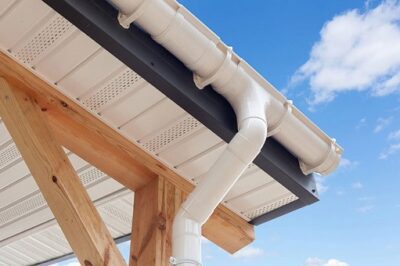

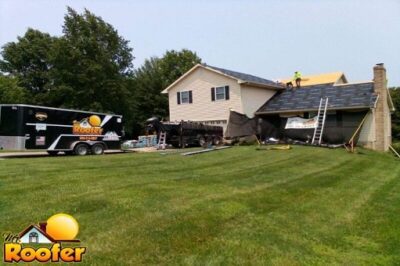
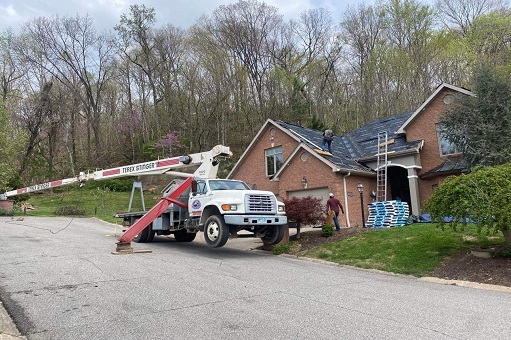
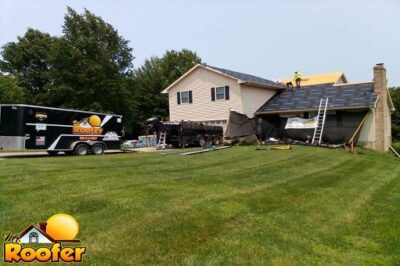
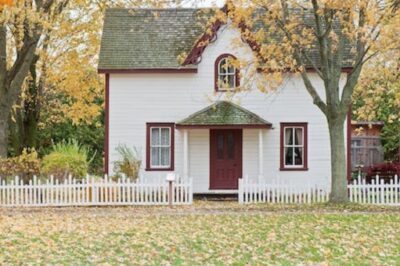
0 Comments